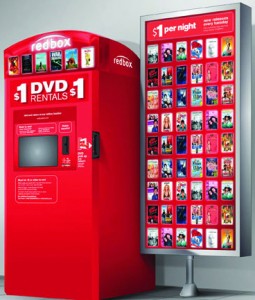
The days of traditional movie rentals are over. After a decades-long struggle to get to the top, Netflix has emerged as the champion of the rental industry, its mailing model putting brick-and-mortar stores such as Blockbuster, Movie Gallery and others out of business.
“The other aspect of [Netflix’s] costumer service is the ability to rent and return whenever with no penalty,” Dr. Leigh Browning, communication faculty at WT, said. “The massive inventory of online companies is a deal breaker for retail rental houses.”
However, experts are predicting that even the rental king will have to change its business model. Thanks to services such as iTunes, XBox Live and Hulu, streaming and downloaded content is becoming more popular than broadcast or DVD´s.
“Much like the music CD, there is no reason to own DVD´s. You can go get content and “pull it up” whenever you wish. No need to dust off the DVD shelf,” Browning said. “This is likely the last physical format of movies, TV, and music. Blu-Ray will hold on for a while, but still, it will go away soon.”
According to Variety Magazine, DVD sales in Japan have been dropping for five years in a row. In the past, companies looked mostly at box office and DVD sales to gauge their success. According to AdAge, now companies are considering downloads, even targeting users on YouTube and Hulu specifically.
Experts predict that Hollywood’s business model is in the midst of a big change.
“It will be the way we consume our media content. Appointment TV is fading quickly. We rarely watch shows in a first run schedule. We know we can go get the content when we want it and watch it on whatever screen we choose,” Browning said. “This democratized business model will be hard to undo.”
This has led to media conglomerates teaming up with leaders in technology to better target their changing audience. Apple, Google and Microsoft have all begun working on “web TV,” though there may be legal pitfalls in the future.
“The minefield of media convergence will also be dependent on net neutrality and how Congress votes on this,” Browning said. “If the playing field is “even,” these platforms will compete for the same consumers. If not, we will all have to bow to the highest bidder.”
According to cNet, this move may make or break the relatively young company.
However, some are arguing this step is a “gateway drug” for internet TV. TechCrunch, for example, lauds Netflix as a savior of the movie industry and argues that this move may be the final push Internet or Web or whatever we end up calling TV needs.
“Netflix did what Chris Anderson, editor of Wired Magazine, has said about the new media world,” Browning said, referring to Anderson’s book on New Media, The Long Tail. “Make what people want, get it out to where people can get it, when they want it, as many times as they want it, whatever time they want it, and on whatever platform they wish.”







